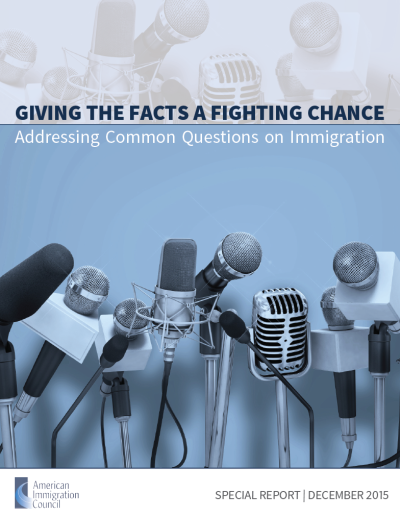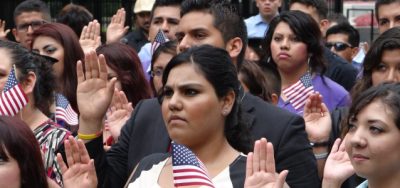Birthright Citizenship
What is Birthright Citizenship?
Birthright citizenship is a legal principle under which citizenship is automatically granted to individuals upon birth. There are two forms of birthright citizenship: ancestry-based citizenship and birthplace-based citizenship. Birthplace-based citizenship, which grants citizenship based on place of birth, is formally referred to as jus soli, a Latin term meaning "right of the soil." In the United States, birthright citizenship is guaranteed by the Fourteenth Amendment to the Constitution. Specifically, it states that "all persons born or naturalized in the United States, and subject to the jurisdiction thereof, are citizens of the United States and of the state wherein they reside." This principle was confirmed by the 1898 Supreme Court case United States v. Wong Kim Ark, which clarified that children born in the U.S. to immigrant parents are citizens, regardless of their parents' immigration status. The U.S. employs a combination of:- Unrestricted birthplace-based citizenship (jus soli): Granting citizenship to anyone born on U.S. soil, regardless of their parents' status, with exceptions like children of foreign diplomats.]
- Restricted ancestry-based citizenship (jus sanguinis): Extending citizenship to children born abroad to U.S. citizens, provided statutory requirements are met.
Birthright Citizenship in the United States
- Birthright Citizenship
- March 14, 2025
This fact sheet explains birthright citizenship, the Fourteenth Amendment, and its interpretations. Who is eligible for birthright citizenship? Can birthright citizenship be…
Read More
Birthright Citizenship: What It Is and Why We Need to Preserve It
- Birthright Citizenship
- August 21, 2015
There has been a media frenzy over one of the more draconian components of…
Read MoreBirthright Citizenship: Myths, Facts and Why It Matters
- Demographics
- September 16, 2009
The issue of birthright citizenship, although not traditionally a sexy topic, is not without…
Read More
Ending Birthright Citizenship Could Put All Americans’ Nationality in Jeopardy
On Monday night, President Trump told reporters that he intended to end birthright citizenship and claimed that he could do so with an executive order. Birthright citizenship comes from the Fourteenth Amendment to the Constitution, which states that “Any person born or… Read More

American Immigration Council on President Trump’s Plan to End Birthright Citizenship
President Donald Trump said yesterday in an interview that he plans to sign an executive order to eliminate birthright citizenship, a principle enshrined in the U.S. Constitution that grants citizenship to any person born within the territory of the United States. Read More

Texas Ends Attempt to Deny Birth Certificates to Children of Immigrants
More than a year ago, Texas county officials began to require that foreign passports presented by parents seeking to obtain their child’s birth certificate include a valid U.S. visa. The state also ended its practice of accepting Mexican “matriculas” as a form of identification. As a result, many… Read More

Giving the Immigration Facts a Fighting Chance
As we move through the 2016 presidential election cycle, the issue of immigration will continue to be a central topic of the debate. The United States is at a tipping point after more than two decades without meaningful upgrades to its immigration system. Current U.S. law does not provide sufficient… Read More

Giving the Facts a Fighting Chance: Addressing Common Questions on Immigration
Americans pride themselves on belonging to a nation of immigrants. In fact, many Americans celebrate not only the traditions of the United States, but the traditions of the countries from which their families came. Today, immigrants make enormous contributions to our economy and our communities—just as they always have. Yet… Read More

The Battle Over Birth Certificates in Texas
In May, a group of undocumented parents, represented by South Texas Civil Rights Project and Texas Rio Grande Legal Aid, filed a lawsuit against the State of Texas for denying their children, born in the state, birth certificates. The legal team also asked the judge to issue a preliminary injunction—a… Read More

Birthright Citizenship: What It Is and Why We Need to Preserve It
There has been a media frenzy over one of the more draconian components of Republican presidential contender Donald Trump’s immigration policy platform. In his plan, released earlier this week, he writes that the U.S. should “End Birthright Citizenship.” However, despite the attention Trump is getting for this, he is… Read More

Ending Birthright Citizenship: (Still) Unconstitutional, Unwise, Unworkable, and Un-American
The House Judiciary Committee will hold a hearing entitled “Birthright Citizenship: Is It The Right Policy For America?” The hearing will question whether those born in America will automatically be citizens, as they have been for over 150 years. Undoubtedly, the hearing will feature the same counterproductive anti-immigrant… Read More

Latino Voters Poised to Again Play Key Role in Elections
One year after the 2012 elections, in which the Latino vote played a pivotal role in the re-election of President Obama, the Republican Party is still attempting to figure out how to attract Latinos and new immigrant voters to the fold. Tomorrow, voters head to the polls to decide several state elections and the gubernatorial races in New Jersey and Virginia, and it looks like how a politician talks about immigration will continue to be a litmus test for Latino and Asian voters—many of whom see immigration as a personal issue. Consequently, the contrast between the Virginia and New Jersey races couldn’t be more telling. Read More

Taking the Important Leap to Citizenship
Each year on September 17, the United States observes Constitution Day and Citizenship Day, a combined event that commemorates the anniversary of the nation’s constitution and recognizes all those who are or have become U.S. citizens. It is considered a time for Americans to reflect on the importance of the rights and responsibilities of citizenship, as well as what it means to be a U.S. citizen. However, it’s also an important time to applaud those who have worked hard to become citizens, while exploring ways to remove barriers for those who are eligible, but still haven’t taken the leap. Read More
Make a contribution
Make a direct impact on the lives of immigrants.

